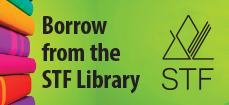
Through an animated story, real-life interview and slides that present relevant facts, this 30-minute video explains the connection between mental health and personal finances.
Story summary:
Follow Maxine and her friends, Andrew and Yuvraj, as they discover how being cost-conscious and developing positive spending habits can be beneficial to one’s mental health.
Rather fortuitously, Maxine, who just that evening received a dreaded "insufficient funds" message while attempting to buy dinner for her friends, comes across and downloads a personal finance management app called "Blue Skies".
Our trio of characters then receive and learn from the actionable advice of our "real-world" host of the app and apply it to their everyday life in an animated world.
Video sections:
- 00:00 Introduction
- 01:56 Impact of finances
- 06:00 Finding help
- 12:46 Connection between finances and mental health
- 15:40 Responsible financial decisions
- 24:47 Budgeting



This website contains important information on the Canadian banking system.
Here are some examples:
- Banking basics focus sheets on various financial topics, including:
- Credit cards: Use and benefits
- Protection against fraud and scams
- Alternatives to payday loans
- Banking sector services for Indigenous Peoples
- Opening a bank account
- Representation of women at banks in Canada
- Your Money Students program:
- A free financial education seminar for Canadian high school students delivered in-class by bankers who volunteer their time in their communities.
- Lifestyle Reality Check: Interactive budgeting online app
- Canadian bank milestones: An infographic timeline of banking history in Canada
- Current Canadian banking statistics




The Canadian Foundation for Economic Education (CFEE) is a non-profit, non-partisan organization, founded in 1974, that works to improve economic, financial, and enterprising capability.
Here are some resources that support Financial Literacy 10:
- Building Futures in Saskatchewan
- Lists the CFEE resources for each outcome of Financial Literacy 10.
- Money Laughs
- 10 vignettes
- Just For Laughs Gags mime style
- Includes "Money Tips"
- Teacher Guide
- Cash Class
- Short animated video for each outcome


The Saskatoon Industry Education Council offers career exploration education through hands-on programs, events, and partnerships that connect students with industry professionals and real-world experiences.
Their Contact360 site offers career exploration resources such as:
- Relevance Magazine: interviews with young professionals, career tips and information, and the annual Job Chart.
- Career Talks: videos featuring over 100 local professionals sharing their career journeys.
- employABILITY: job readiness resources, including instructional resources for resumés, cover letters, job interview skills, and more.
- Career Education 6-9: Access discussion questions, activity suggestions, and local resources.



Financial Basics is a resource to help students learn about budgeting, saving, credit, investing, fraud prevention and financial planning.
The resource includes:
- Presenter's Manual (Teacher Guide), 64 pages, English or French, online PDF or print.
- Participants' Handbook (Student Guide), 47 pages, English or French, online PDF or print.
- Presentation slides (PowerPoint format), 98 slides, English or French.
- E-learning Videos, 8 videos, one video for each module, English or French.
Description of modules:
- Module 1 - Introduction
- Module 2 - Budgeting
- Module 3 - Managing Your Cost of Living - Being a Smart Consumer
- Module 4 - Credit and Debt Management
- Module 5 - Saving and Investing
- Module 6 - Setting Financial Goals
- Module 7 - Protect Yourself
- Module 8 - Summary and Wrap-up


The Indigenous Edition of Money and Youth builds on the original resource from the Canadian Foundation for Economic Education, CFEE. Damon Johnston, President of the Aboriginal Council of Winnipeg, provided guidance rooted in traditional teachings and the Seven Sacred Laws. Vanessa Everett, CEO of Economic Development with the Keewatin Tribal Council, adapted the original version by Gary Rabbior of CFEE. Input from respected individuals across Turtle Island also helped shape this edition.
Topics covered:
- Goals, Values and Decision-making
- Getting and Earning Money
- Spending Money and Taking Control
- Borrowing Money and Using Credit
- Saving and Investing Money
- Protecting Assets and Planning for the Future.
The resource includes:
- Student Guide, English, free online PDF version or hard copies can be ordered at a minimal fee
- Teacher's Guide, English, free online version
Junior Achievement Canada offers several resources to support teaching and learning about financial literacy in Saskatchewan.
Suggested resources to support Financial Literacy 10 include:
Budget Creation Tool
- Online interactive budget creation tool
Access Financial Literacy Experts
- Classroom presentations from experts in various fields of financial literacy can be arranged via Junior Achievement Canada, Saskatchewan Chapter, lsteinley@jasask.org.
Open Access Modules (no sign in required)
- Financial Future Modules
- My Career Goals
- My Credit and Spending
- The Financial Roller Coaster
- My Transferable Skills
- Paying for My Wants and Needs
- Planning for My Future Income
-
Your Money Questions Answered Modules (video, independent online learning)
- How do I pay for things?
- How can I have money for the things I need?
- How can I keep my money safe?
- What do I need to know about credit?
- Scam Smarts
- Phishing Scams
- Website Scams
- Social Media Scams
- Post Secondary Questions
- Pathways
- Costs
- Budget
- Income Potential
Programs (An enrollment code is required.)
- Dollars with Sense
- Budgeting
- Saving and investing
- Spending wisely
- Credit and debt
- Financial planning
- Personal Finance
- Budgeting
- Saving
- Investing
- Credit



This Canadian resource supports the Financial Literacy curriculum and provides information at a suitable introductory level. The resource is organized under six headings for a total of 15 modules.
Topics covered:
- Goals, Values and Decision-making
- Getting and Earning Money
- Spending Money and Taking Control
- Borrowing Money and Using Credit
- Saving and Investing Money
- Protecting Assets and Planning for the Future.
The resource includes:
- Student Guide, English or French, free online PDF version or hard copies can be ordered at a minimal fee
- Teacher's Guide, English or French, free online version
This Canadian textbook is divided into five parts:
- Planning Your Personal Finances
- Managing Your Personal Finances
- Insuring Your Assets
- Investing Your Financial Resources
- Controlling Your Financial Future
The resource contains case studies, concept checks, assignments and assessment examples.
There are four purchase options:
- eBook
- eBook only (online version of textbook)
- Connect
- eBook, homework, adaptive assignments and study tools
- Connect and print text
- eBook, homework, adaptive assignments and study tools
- printed textbook
- Print text
- printed textbook only

- Learning Hub
- Toolkits
- Money Management Worksheets
- Dealing with Debt
- Investing with Interest
- Managing Your Money
- Soaring with Savings
- Supported Tax Filing Toolkit
- Financial Literacy Facilitator Resources
- Exploring Your Relationship With Money
- Incomes & Taxes
- Budgeting
- Banking and Financial Services
- Saving
- Credit Basics
- Credit Reporting
- Debt
- Consumerism
- Money Management Worksheets
- Toolkits




SaskMoney is a website that has been created by the Saskatoon Industry Education Council (SIEC) to support Saskatchewan educators in implementing financial literacy curricula. The website provides a variety of activities and resources to increase students’ financial literacy skills.
The website includes:
- Online and printable teacher guides for Financial Literacy 10 outcomes and Financial Literacy 20, 30 modules that contain the following sections:
- Overview
- Suggested time
- Suggested activities
- Resources
- Assessment
- Student Sask Money Minute project overview
- Sask Money Minute videos on various subjects, including:
- Budgeting
- Saving
- Spending
- Borrowing
- Money Fair project overview




myBlueprint is an online education and career/life planning platform designed for Canadian students aged 12–18, offering tools to explore personal interests, plan high school courses, and prepare for post-secondary pathways . It features self-assessments, digital portfolios, and real-time eligibility tracking for post-secondary programs, helping students make informed decisions about their futures .
Here are just a few of the topics covered by this platform:
- Interactive Self-Assessments: Tools to explore interests, personality, learning styles, and career matches.
- Digital Portfolios: A space to document achievements, reflections, goals, and experiences throughout their education journey.
- High School Course Planner: A visual planner that ensures students meet graduation requirements and align courses with future goals.
- Post-Secondary Exploration: Access to detailed information on colleges, universities, apprenticeships, and workplace pathways across Canada.
- Goal Setting and Reflection Tools: Features that help students set academic, personal, and career goals with regular progress tracking.
- Resume and Cover Letter Builder: Step-by-step guidance to create professional resumes and cover letters using their saved experiences and skills.
















This document will assist individuals and communities to engage in meaningful discussions and actions to respond to the experiences, perspectives and needs of students and families who are gender and/or sexually diverse (GSD).
Content includes:
- Gender and Sexual Diversity
- First Nations and Métis Ways of Knowing
- Assumptions, Privilege and Oppression
- Comprehensive School Community Health (CSCH)
- CSCH Approach to Creating Inclusive Schools














and grades. Suggested curriculum outcomes are identified and, if applicable, supporting indicators
are noted.








The purpose of the presentation is to describe strategies teachers can use to approach content that may be perceived as sensitive in their community in order to:
- ensure the learning environment is safe for respectful dialogue;
- teach students how to think critically about any topic with an open mind; and,
- meet curricular outcomes.










